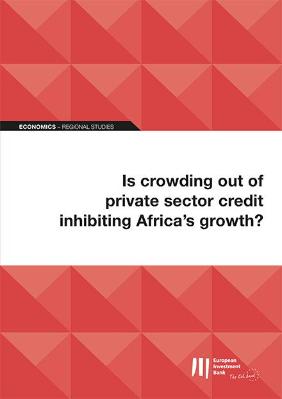
Part of the series :
Description
The increase in public debt across Africa due to the COVID-19 crisis intensified crowding out of credit to the private sector. As the economic recovery got underway, credit demand by the private sector picked up again in 2021, thus competing with government securities for funding. The analysis presented in this study confirms that crowding out has become more severe, but that timely policy support averted a credit crunch. Evidence of an increased sovereign-bank nexus highlights risks to macro-financial stability, especially as sovereign creditworthiness is deteriorating. Reducing excessive sovereign borrowing and strengthening countries’ public debt management and transparency will help to contain crowding-out effects. Domestic and international development finance institutions can support these efforts by catalysing private sector resources and providing technical assistance.
All publications in this series
- Banking in Jordan: Financing corporates and SMEs in the era of COVID-19
- Finance in Africa: for green, smart and inclusive private sector development
- Georgia Country Diagnostic
- Private sector development in Morocco
- Banking in Africa: financing transformation amid uncertainty
- Financing in Georgia: Small and medium enterprises and the private sector
- Corporate innovation in Austria: Findings from the EIB Investment Survey
- Innovation investment in Central, Eastern and South-Eastern Europe: Building future prosperity and setting the ground for sustainable upward convergence
- Banking in Africa: Delivering on Financial Inclusion, Supporting Financial Stability
- Infrastructure Investment in the Western Balkans: A First Analysis
- Republic of Belarus: Financial Sector Review and Private Sector Financing
- Banking in sub-Saharan Africa - Interim Report on Digital Financial Inclusion
- Wind of change: Investment in Central, Eastern and South Eastern Europe
- Banking in sub-Saharan Africa - Recent Trends and Digital Financial Inclusion
- Armenia: Neighbourhood SME financing
- Albania: Assessment of financing needs of SMEs in the Western Balkans countries
- Bosnia and Herzegovina: Assessment of financing needs of SMEs in the Western Balkans countries
- FYROM: Assessment of financing needs of SMEs in the Western Balkans countries
- Kosovo: Assessment of financing needs of SMEs in the Western Balkans countries
- Montenegro: Assessment of financing needs of SMEs in the Western Balkans countries
- Serbia: Assessment of financing needs of SMEs in the Western Balkans countries
- Assessment of financing needs of SMEs in the Western Balkans countries - Synthesis Report
- Georgia: Neighbourhood SME financing
- Jordan: Neighbourhood SME financing
- Tunisia: Neighbourhood SME financing
- Ukraine: Neighbourhood SME financing
- Neighbourhood SME financing – Synthesis Report
- Recent Trends in Banking in sub-Saharan Africa - From Financing to Investment
- Armenia: Private Sector Financing and the role of Risk-bearing Instruments
- Azerbaijan: Private Sector Financing and the role of Risk-bearing Instruments
- Georgia: Private Sector Financing and the role of Risk-bearing Instruments
- Moldova: Private Sector Financing and the role of Risk-bearing Instruments
- Ukraine: Private Sector Financing and the role of Risk-bearing Instruments
- Private Sector Financing and the role of Risk-bearing Instruments - Synthesis Report
- Small and Medium Entrepreneurship in Russia
- Banking in the Mediterranean - Financing Needs and Opportunities in Turbulent Times
- Banking in Central and Eastern Europe and Turkey - Challenges and Opportunities
- Banking in sub-Saharan Africa - Challenges and Opportunities
- Banking in the Eastern Neighbours and Central Asia – Challenges and Opportunities
- Banking in the Mediterranean - Challenges and Opportunities
- Financial Mechanism for the Development of Energy Efficiency and Renewable Energies in the Southern and Eastern Mediterranean Countries


